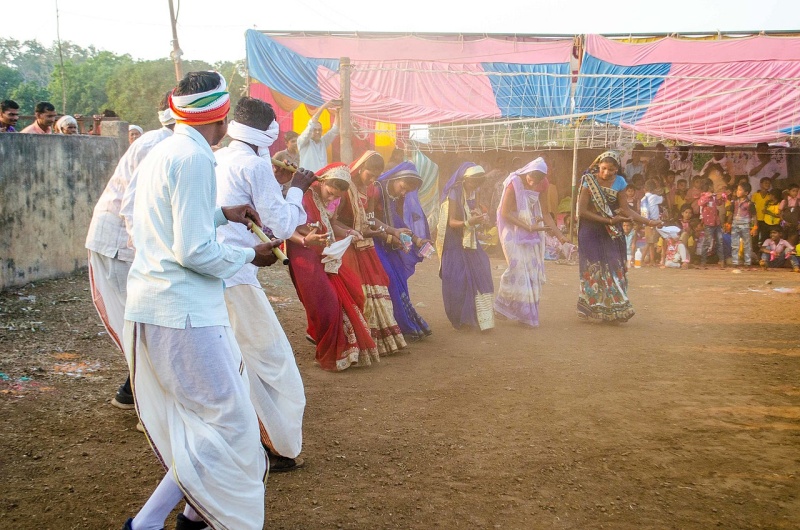The Korku - Tribes of Madhya Pradesh
Khandwa
Tribal Tour...Korku.
Khandwa
Korku is a scheduled tribe (ST) community predominantly found in the East Nmar (Khandwa and Burhanpur), Betul and Chhindwara districts of Madhya Pradesh and adjoining areas in Melghat region of Maharashtra in India speaking the Korku language, which is a member of the Austroasiatic language family.
Korkus have derived their name from the combination of the word ‘koru’ meaning man and ‘ku’ which makes it plural meaning tribal men (Russell and Hiralal, 1916). The Korkus are a branch of the great Munda tribes and are placed here in the vicinity of the great tribe- the Gonds (Deogaonkar et al., 1990). Korkus are initially believed to be a hunting gathering community dwelling in the forests of Satpura ranges on either sides of the river Tapti.
The Korku tribe lives in small groups of huts made of grass and wood. Every household has elevated stage like structure in the front side of the house. This elevated stage is used as a storage space of farm produce such as cattle feed. They socially consume liquor made from the flowers of the Mahua tree which is prepared in almost all the houses. Predominantly, a rural-based community with 98.74 per cent living in rural areas, Korkus are primarily cultivators. Whilst they share the love of the forests with the Gonds, they are also excellent agriculturists and in Bhainsdehi tahsil of Betul district have pioneered the cultivation of potato and coffee.
The community is the home to a unique and distinct culture, possesses a rich heritage of age old traditional systems more pertinently in terms of indigenous knowledge, beliefs, customs and social system. Traditional representative body of the society known as ‘Korku Panchayat’ is found in many villages. Headed by a chief known as Patel, other members in the Panchayat include Padihar (priest), Kotwar (Chaukidar) and ten to twelve older male members of the community known as Panch. It plays a decisive role during traditional occasions mainly in festivals, marriages and intra- and inter-village conflict resolutions. Known for poverty, hunger, malnutrition, mass-scale exploitation by moneylenders and traders, the community confronts with numerous socio-economic challenges in the day-to-day life partly due to the poor natural resource bases. Agriculture though the primary source of livelihoods for most of the community members, many of them earn their livelihoods seasonally employed as agricultural labourers.
Since this tribal community dwells in hilly region, their staple food consists of Jawar, Bajra, Corn and kutki. They also consume Lachka to beat their hunger. They also eat pork, fish, buffalo, crab and birds.
Korkus are believers of Lord Shiva. They also worship Dogand Devta, Meghnad, Murda Dev and Moon. Korkus have a ritual to worship their dead. They build a memorial of pillar for the dead and worship them, they call them as Munda dev.
Source of Information is Internet, Might vary, Kindly crosscheck/reconfirm before finalizing the Tour Plan.
